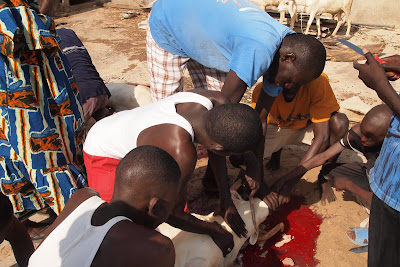GRADES: Kaolack, the Land of Flies, Salty Water, and Sandy Running Paths

Much awaited was my visit to Kaolack and short internship with GRADES (Group of Reflection and Action for the Development of Senegal). Before leaving for Kaolack, my family in Pikine told me three things about the city: there is a lot of theft, it’s dirty and the water is salty, and there are more flies than in Dakar. Sounds like a nice place, huh? Knowing that humans are prone to exaggeration, I had no doubt that I would find something good about this new city and region, in spite of the negative lot of characterizing details I received prior to my travels. Certainly I was right: I found many good things that I liked about Kaolack; unfortunately, so was everyone else. I traveled to Kaolack to assist GRADES in writing their Strategic Plan 2012-2016. I left Sebikotan and arrived in the city nearly four hours later when the sun was high in the sky and fiercely strong. My host told me that his wife had recently been mildly, physically assaulted and robbed by a motorcycle driver; he en...



